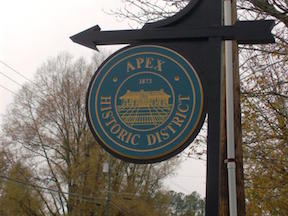Summary | Excerpt | Reviews | Beyond the book | Read-Alikes | Genres & Themes | Author Bio

A comedy of manners that explores the unease behind the manicured lawns of suburban America from the Orange Prize–winning author of A Crime in the Neighborhood.
Littlefield, Massachusetts, named one of the Ten Best Places to Live in America, full of psychologists and college professors, is proud of its fine schools, its girls' soccer teams, its leafy streets, and charming village center.
Yet no sooner has sociologist Dr. Clarice Watkins arrived to study the elements of "good quality of life" than someone begins poisoning the town's dogs. Are the poisonings in protest to an off-leash proposal for Baldwin Park - the subject of much town debate - or the sign of a far deeper disorder? Certainly these types of things don't happen in Littlefield.
With an element of suspense, satirical social commentary, and in-depth character portraits, Suzanne Berne's nuanced novel reveals the discontent concealed behind the manicured lawns and picket fences of darkest suburbia.
...this isn’t just a novel of ideas; Berne’s scrutiny of upper-middle-class suburbia is also grounded in specific scenes that offer rich fodder for satire: a town meeting, a dinner party, and a book group (particularly ironic since Berne’s novel itself is more than likely to spark heated discussion at countless book groups). Frequently hilarious, always intriguing, Berne’s foray into the dining rooms and psychotherapy offices of Littlefield will prompt readers to look anew at their own aspirations and relationships...continued
Full Review
 (559 words)
(559 words)
(Reviewed by Norah Piehl).
 When Dr. Clarice Watkins sets out to academically scrutinize one of the "Best Places to Live in America," she notes that the criteria for making the list include "Good quality of life," along with "Quiet and safe." For many years, Money magazine has compiled its own annual roundups of the "Best Places to Live." According to Money, their rankings feature "places with great jobs, strong economies, affordable homes, excellent schools, and that special something that makes it a great place to live."
When Dr. Clarice Watkins sets out to academically scrutinize one of the "Best Places to Live in America," she notes that the criteria for making the list include "Good quality of life," along with "Quiet and safe." For many years, Money magazine has compiled its own annual roundups of the "Best Places to Live." According to Money, their rankings feature "places with great jobs, strong economies, affordable homes, excellent schools, and that special something that makes it a great place to live."
 Topping the list in 2015 was Apex, North Carolina, a town of 42,000 people located about twenty minutes outside Raleigh (thanks to a new toll road built in response to rapid population growth). In their intro, the editors of Money write that "...
Topping the list in 2015 was Apex, North Carolina, a town of 42,000 people located about twenty minutes outside Raleigh (thanks to a new toll road built in response to rapid population growth). In their intro, the editors of Money write that "...

If you liked The Dogs of Littlefield, try these:

by Jonathan Dee
Published 2018
A rural working-class New England town elects as its mayor a New York hedge fund millionaire in this inspired novel for our times - fiction in the tradition of Jonathan Franzen and Jennifer Egan.

by Lauren Acampora
Published 2016
Deliciously creepy and masterfully complex The Wonder Garden heralds the arrival of a phenomenal new talent in American fiction.